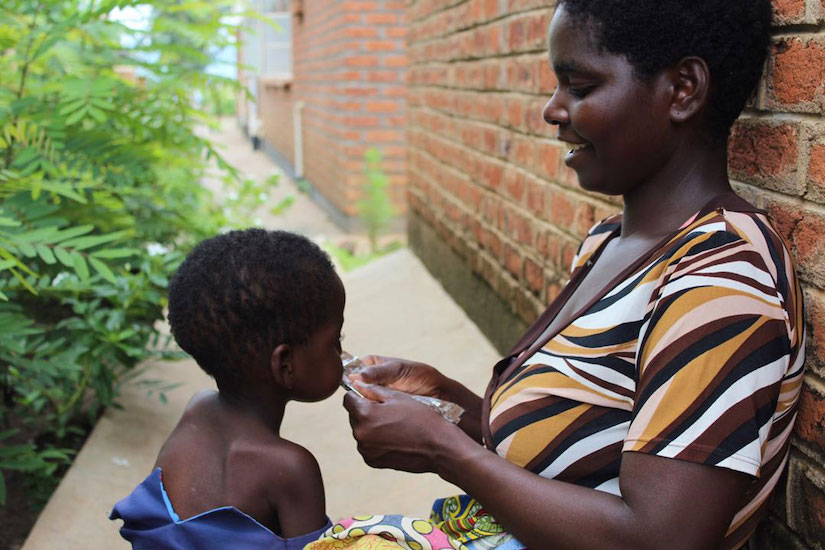WashU research spurs changes to global guidelines for feeding malnourished kids
Globally, more than 16 million children under age 5 suffer from severe acute malnutrition. The condition is a form of starvation that primarily affects kids from impoverished areas of Africa and Asia and causes excessive thinness or swelling of the body while also compromising organ systems, including the brain.
Results of a major clinical trial in Africa led by Mark Manary, MD, a professor of pediatrics at Washington University School of Medicine in St. Louis, prompted the change. The trial, in Malawi in sub-Saharan Africa, showed that altering the fatty acid composition of nutrient-dense therapeutic food can improve cognition and boost IQ scores of severely malnourished children, while also enhancing language proficiency and motor skills.
Specifically, Manary and his WashU colleagues showed that adding an omega-3 fatty acid called docosahexaenoic acid (DHA) to the therapeutic food and reducing the amount of linoleic acid — a polyunsaturated omega-6 fatty acid — provided the most benefit to malnourished children. DHA is a nutritional supplement that has become popular in the U.S. and is touted as an addition to some types of yogurt, milk and infant formula.
Based on these findings, a global commission that sets food-safety standards adopted new guidelines calling for ready-to-eat therapeutic food (RUTF) to be reformulated to include DHA and to lessen the amount of linoleic acid.
“Imagine the effects of improving the brain development of millions of kids,” said Manary, the Helene B. Roberson Professor of Pediatrics. “Our ultimate mission was to change global policy, and that’s what we did. The children deserved nothing less.”
The new guidelines went into effect in January and, while voluntary, are expected to be followed by makers of ready-to-eat-therapeutic food. They were approved in late 2022 at a meeting of international public health heavyweights on the Codex Alimentarius Commission, a group formed by the World Health Organization (WHO) and the U.N.’s Food and Agriculture Organization. The commission sets food-safety standards followed by most of the world’s nations, making it essentially the global equivalent of the U.S. Food and Drug Administration.
However, Manary’s scientifically backed pleas to reformulate RUTF almost went unheeded. The researchers had to fight for it.
“The brain is the most important organ in the body,” Manary said. “We could not take no as an answer when an opportunity existed to build a stronger brain and improve children’s lives.”
